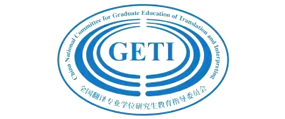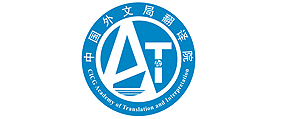国际翻译家联盟(FIT)把翻译工作者的权利 确定为2003年的翻译日主题,是希望重提该机构50年前成立的一个宗旨。
FIT 从成立至今,始终将翻译工作者的权利作为所关注的主要问题之一。1963年颁布,1994年修订的《翻译工作者章程》以及1976年联合国教科文组织在内罗毕审议通过的《关于向翻译工作者和翻译作品提供法律保护,切实提高翻译工作者地位的建议书》,这两份文件均体现了国际译联对翻译工作者权利的重视。
遗憾的是,虽然多年来国际译联及其会员组织为此做出了最大努力,翻译工作者的地位却远远没有得到广泛认同。尽管全球化让人们进一步意识到了翻译的必要性,但翻译工作的专业性以及从业者的权利仍然没有得到重视。
西方国家也不例外,那里的翻译工作者仍在争取版权这一最基本的权利。即使《伯尔尼公约》认定译文具有原创性,承认翻译工作者拥有版权,出版商和发行商仍然经常予以回避或忽视。而因特网和电子出版物的问世使这个问题变得更加严重。
除去版权这种令出版物的译者尤为关注的权利以外,还有其他权利需要引起注意,即:拥有适宜的工作环境的权利,它可以保障译者创作出优质作品;获得合理稿酬的权利;最重要的是:承认翻译工作是一种基于专门培训的专业性活动,而不是仅靠掌握两种语言就可以从事的工作。由于公众和用户缺乏对翻译这项工作全面的了解,专业译者不得不证明他们所接受的教育、进行的工作、提出的稿酬标准,乃至生存方式都是必要而合理的。再有,因特网提供的机器翻译系统的运用使现状更加恶化,即使人们已经普遍认识到这种翻译系统的译文质量非常低劣。
除了这些专业方面的忧虑之外,还有更为令人担心的问题, 那就是对人权的侵犯。人们曾多次呼吁国际译联对于那些惨痛的事件做出反应。例如:在萨曼·拉什迪遭到伊斯兰教法学家的裁决后,他的两位译者被谋杀。另一个事件是,一位土耳其译者因他翻译的小说中的某些段落有被视为露骨的性描述而被告上法庭。
国际译联把翻译工作者的权利确定为2003年翻译日的主题,旨在促使国际译联会员组织和公众加强以下的认识:翻译在人类交流(包括文化、经济、政治或社会交流)中起着重要作用,翻译的专业化是非常必要的。
附:英文原文
Translators’Rights
In choosing Translators’ Rights as the theme for International Translation Day 2003, the International Federation of Translators (FIT) wanted to revisit one of the reasons it was established 50 years ago.
Translators’ rights have been one of the main concerns of FIT since its beginning. The Translator’s Charter, published in 1963 and amended in 1994, and the Recommendation on the legal protection of Translators and Translations and the practical means to improve the Status of Translators, adopted by UNESCO in Nairobi in 1976 (Nairobi Recommendation) are evidence of this. (These documents can be found on the FIT website at: www.fit-ift.org)
Unfortunately, despite the best efforts of FIT and its member associations over the years, the translator’s professional status is still far from being accepted universally. Although globalization has heightened awareness of the need for translation, it has not led to the recognition of the professional nature of the activity and the rights of its practitioners.
Western countries are no exception to this state of affairs, and translators there are still fighting for one of their most fundamental rights, that of copyright. Even though the Berne Convention, which considers a translation to be an original work, recognizes copyright for translators, publishers and distributors regularly evade or ignore it. The advent of the Internet and electronic publications have only exacerbated the problem.
In addition to copyright, which is of special concern to translators of publications, there are other rights that require attention: the right to proper working conditions that allow the translator to produce quality work, the right to reasonable remuneration, and above all the right to the recognition of translation a professional activity that requires specialised training and not simply a result of learning two languages. The lack of understanding on the part of the public and thosewho use translation often means that professional translators have to justify their education, their work, their rates and even their very existence. Again, the availability of machine translation systems on the Internet has not improved the situation, even though it is widely accepted that such systems provide very poor translations indeed.
To these professional concerns are added even more serious concerns, namely the violation of human rights. The International Federation of Translators has been called on many times to react to tragic circumstances. For example, the murder of two of Salman Rushdie’s translators after the fatwa was issued against him. Or the case of the Turkish translator brought to court for by translating a novel that contained passages deemed to be sexually explicit.
By making Translators’ Rights the theme of International Translation Day, the International Federation of Translators wants to heighten awareness among its member associations and the public about the importance of translation in human exchanges, be they cultural, economic, political or social, and of the need to recognise translation as a profession.

















